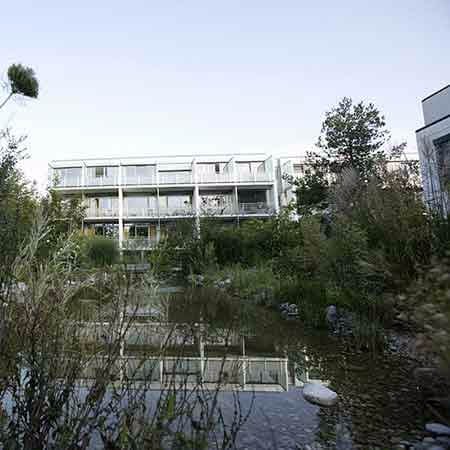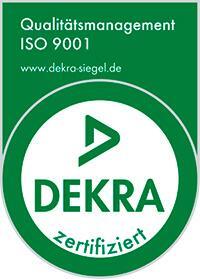A hydrocele is an abnormal accumulation of serous fluid between the two layers of the tunica vaginalis of the testicles. The disease can be congenital or acquired. According to various estimates, from 1.5% to 4% of men suffer from hydroceles. Without treatment, suppuration or dropsy rupture may occur, and reproductive function also worsens. Chronic pain may develop, and some men also have calculi (stones) that increase the risk of developing testicular cancer. The fact that a hydrocele has been detected is an indication for treatment. Therapeutic options may include operations or minimally invasive procedures. You can make an appointment for your diagnostics and treatment of hydrocele in Germany on the Booking Health website.
Content
- Types of hydrocele
- Symptoms and diagnostics
- Surgical treatment
- Sclerotherapy
- Why to undergo your treatment in Germany?
Types of hydrocele
Based on the number of testicles involved, the disease can be unilateral or bilateral. The most common is a unilateral hydrocele.
By origin, the disease can be congenital or acquired. The congenital condition is associated with non-closure of the vaginal process of the peritoneum. Such patients are operated on in the first one and a half to two years of their lives. Acquired hydroceles are associated with injuries, inflammation, swelling, and other causes.
Based on the clinical course, a hydrocele can be acute or chronic.
Symptoms and diagnostics
The main complaints of patients suffering from a hydrocele are as follows:
- a cosmetic defect;
- pain during movement, during sexual intercourse, or urination.
When examining a patient, a doctor can see a pear-shaped swelling, which is turned base down. On palpation, the scrotum is painless.
In some cases, a hydrocele may cause no symptoms other than an enlarged testicle. Treatment, however, is still required, since dropsy impairs the blood supply to the scrotum and can lead to complications over time. In 30% of patients, reproductive function may be affected as spermogram parameters deteriorate.
Hydrocele testicles may cause inflammation with suppuration or bleeding with the formation of a hematoma. It increases the risk of infertility, testicular rupture, or testicular cancer. A giant hydrocele can compress the internal organs, disrupting their function. In older men with significant dropsy enlargement, the penis is drawn into the scrotum, which makes it difficult to urinate.
A clinical examination and an ultrasound scan are usually sufficient to diagnose the disease. If these methods are not informative enough, a scrotal MRI will be performed. Duplex ultrasound scans allow doctors to assess the blood flow in the testicles. X-ray methods, including computed tomography, are not used because ionizing radiation has a bad effect on reproductive function.
Surgical treatment
Surgery is considered the standard treatment for hydrocele testicles in the departments of urology at German hospitals.
Operations through a scrotal approach. This type of treatment is performed through a scrotal incision. The main types of interventions are Bergmann's operation, Winkelmann's operation, and the more sparing Lord's operation, which has become widespread in developed countries. Lord's operation does not require any isolation of the hydrocele from surrounding tissues, is less traumatic, and excludes any damage to blood and lymphatic vessels. This operation cannot, however, be performed for large and multi-chambered hydroceles. The essence of any variant of surgical treatment is the suturing and partial removal of the testicular membranes. All interventions are equally effective.
The disadvantages of open surgery are a long recovery and scrotal swelling, which persists for several weeks. A patient may also develop complications such as hematomas, bleeding, wound suppuration, lymphostasis, postoperative epididymitis, and orchitis. If you are undergoing your treatment in Germany, the risk of complications will be low. In addition, German doctors often perform operations using an endoscopic technique.
Video-assisted testicular membrane excision. This type of surgery is sparing and minimally invasive. With its help, doctors can treat testicular dropsy of any size. There is no need for the removal of the testicle into the wound, and lymph flow and blood circulation are therefore not disturbed. Doctors do not make any large skin or soft tissue incisions. The surgical procedure is performed through incisions 3-4 mm long. Doctors in Germany have extensive experience in such interventions, so you can be sure of a good result with a low risk of complications. This operation results in a minimal length of a hospital stay, fast rehabilitation, short-term scrotal swelling, and negligible postoperative discomfort.
Tunica vaginalis plasma coagulation. This is an open surgical treatment option. With a stream of ionized inert gas (argon), doctors coagulate the testicle membranes. The technique is not widely used as it requires the removal of the testicle into the wound, which disrupts lymph flow and blood circulation.
Sclerotherapy
An alternative to operations is sclerotherapy. This is a procedure for injecting a substance between the testicle membranes, which causes the membranes to fuse together.
If fluid has accumulated between the testicle membranes, it can be removed from there with a syringe. The problem, however, is that after aspiration, after 1-2 weeks, the fluid accumulates again. If sclerotherapy is performed after aspiration, the testicular membranes will be interconnected, and the fluid will not be able to accumulate between them.
Many sclerosing agents are used in urology, such as tetracycline, povidone-iodine, polidocanol, sodium tetradecyl sulfate, ethanolamine, phenol, or 96% ethyl alcohol. When choosing, it is important that the sclerosant does not cause any severe pain, necrosis, or inflammation and is not toxic. Doctors also pay attention to the preservation of reproductive function.
This is how the procedure is performed:
- Hydrocele puncture.
- Sclerosant injection in a volume that is equal to 10 to 50% of the amount of aspirated fluid.
- Exposure of the sclerosant for 15-30 minutes.
- Complete removal of the sclerosing agent.
- Assessment of results with an ultrasound scan.
- A repeated procedure after 1 month, if required.
Different hospitals perform the procedure in different ways. Sometimes more aggressive but more effective treatment options can be used. For example, the injection of a larger amount of ethyl alcohol could account for up to 80% of the volume of liquid aspiration. After exposure, only 50% of the injected volume is removed, and the rest remains in the testicle for a long time and continues to damage the cyst walls. As a result, a patient has a rougher scar and needs fewer procedures to achieve the same result.
Another improvement to the technique involves the use of 99.5% alcohol instead of 96%.
Candidates for sclerotherapy are men with a small amount of hydrocele testicles. With a large volume, the procedure is also effective, but it has to be repeated several times. The larger the volume of fluid, the more injections of sclerosant a man will need.
Below are listed some of the benefits of the procedure:
- no need for a hospital stay;
- a low incidence of complications;
- sclerotherapy can be performed for patients with contraindications to surgery.
Nonetheless, sclerotherapy also has its drawbacks, so the procedure is not considered the main method for the treatment of dropsy at German hospitals. This manipulation can be painful, although this problem is solved by a spermatic cord block. In 40% of cases, sclerotherapy has to be performed more than once. The effect after one or more procedures is achieved in only 95% of cases, while the effectiveness of the operation is close to 100%.
Why to undergo your treatment in Germany?
If you have been diagnosed with a hydrocele, you can undergo your treatment in Germany. The urology centers in this country have state-of-the-art equipment for diagnostics, minimally invasive procedures, and operations. The effectiveness of hydrocele treatment reaches 100% with a minimal risk of complications.
There are a few reasons for you to undergo your treatment in Germany. These are as follows:
- Accurate diagnostics can reliably distinguish a hydrocele from an inguinal hernia, a varicocele, a tumor, a spermatocele, inflammatory diseases, and other testicular diseases.
- Modern modifications to operations allow doctors to achieve reliable treatment outcomes.
- A low risk of hydrocele recurrences.
- A low risk of damage to the epididymis, testicular blood vessels, and vas deferens.
- The preservation of reproductive function.
- Surgeons perform video-assisted operations that are less traumatic compared to open surgery.
- A non-surgical technique can sometimes be used for the treatment of dropsy, namely sclerotherapy.
- Adequate pain management during medical procedures with a spermatic cord block.
You can find out the cost of treatment at German hospitals on the Booking Health website. Our website presents the cost of treatment at different hospitals so that you can compare prices and choose the most suitable option. When making an appointment for your treatment in Germany through the Booking Health service, the cost of treatment for you will be lower than when contacting the hospital directly, due to the absence of additional taxes for foreign patients.
In addition, you will receive insurance against unforeseen medical expenses. This means that the initial cost of treatment will not increase after the start of the program, even if additional procedures are required. If the cost of treatment decreases, the Booking Health employees will help you return unspent funds as soon as possible.
When you make an appointment for your treatment in Germany through the Booking Health service, you do not have to worry about any travel arrangements. We will contact the hospital's administration ourselves, help you prepare the documents, and translate medical records. Our specialists will also book hotel and airline tickets, meet you at the airport in Germany, and take you to the hospital by car.
Authors:
The article was edited by medical experts, board-certified doctors Dr. Nadezhda Ivanisova and Dr. Sergey Pashchenko. For the treatment of the conditions referred to in the article, you must consult a doctor; the information in the article is not intended for self-medication!
Sources:
MedicineNet
The Lancet
Sience Direct
















